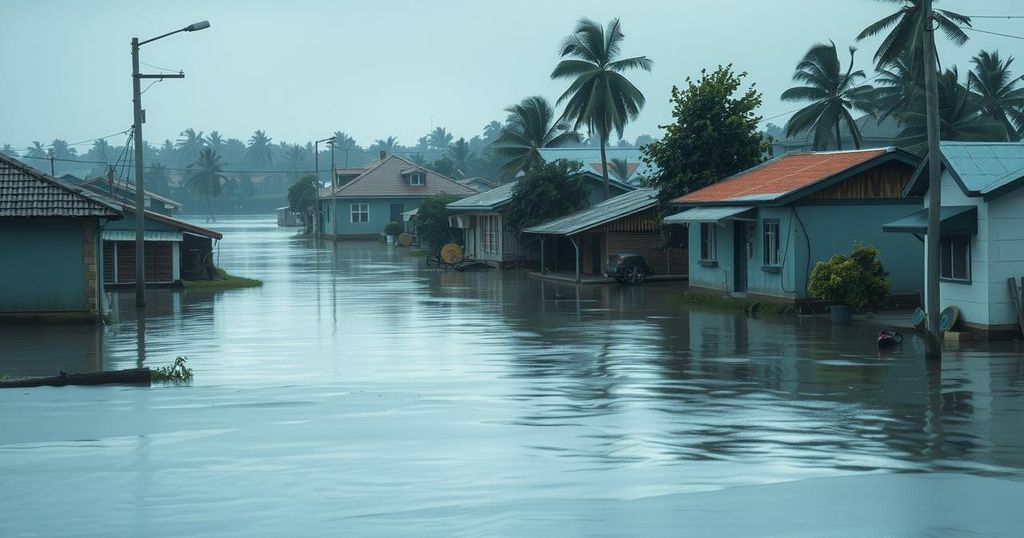Flooding in DR Congo: Heavy Rains Claim at Least 29 Lives in Kinshasa

Heavy rains in Kinshasa, DR Congo, during the dry season have caused floods and landslides, leading to 29 fatalities. The unusual rain patterns, recorded at 90mm on Saturday, are attributed to climate change, exacerbated by poor urban planning. A government crisis meeting was held to coordinate the response and offer condolences to affected families, while past flooding incidents raise concerns about ongoing vulnerability.
Severe flooding in Kinshasa, the capital of the Democratic Republic of Congo, has resulted in the tragic loss of at least 29 lives. This catastrophe is attributed to an unusual heavy downpour during what is typically the dry season. The interior ministry confirmed the fatalities, which have been linked to landslides and floodwaters that swept through the city.
The impact of the rains has been significant, affecting around one-third of Kinshasa. Homes were destroyed, roads submerged, and widespread power outages were reported. The meteorological agency Mettelsat observed an astonishing total of 90mm (3.5 inches) of rain fell on Saturday, surpassing typical levels usually recorded during the rainy season that spans from November to May.
Many experts attribute such extreme weather patterns to climate change. They highlight that the extent of this disaster is aggravated by inadequate urban planning and the lack of effective drainage systems. Given Kinshasa’s geographical location on the Congo River, which is among the longest rivers globally, the vulnerabilities become even more pronounced.
The population of Kinshasa is a staggering 18 million, a reflection of a continuous growth trend of over 4% since 2024, according to Macrotrends. This rapid increase in residents has forced many to live in precarious housing conditions, particularly in flood-prone areas, complicating the city’s infrastructural woes.
In response to the calamity, Interior Minister Shabani Lukoo convened a crisis meeting aimed at orchestrating government efforts to respond to the flooding. The ministry also expressed its sympathies to the families affected, promising to assist with funeral costs for the deceased individuals.
This is not an isolated incident; last May, flash floods in the eastern region of South Kivu claimed over 100 lives, while Kinshasa reported more than 30 deaths in flooding events in April. As storms and heavy rainfall seem to become increasingly common, the region faces a dire need for sustainable and resilient infrastructure to cope with these challenges in the future.
The recent heavy rains in Kinshasa have led to significant loss of life and widespread destruction, illustrating the serious ramifications of climate change effects in urban areas. With a growing population living in vulnerable conditions, urgent governmental action is necessary to improve infrastructure and emergency response mechanisms to prevent further disasters like this. The government’s commitment to assist bereaved families provides a glimpse of the immediate response, but long-term solutions are imperative.
Original Source: www.bbc.com







